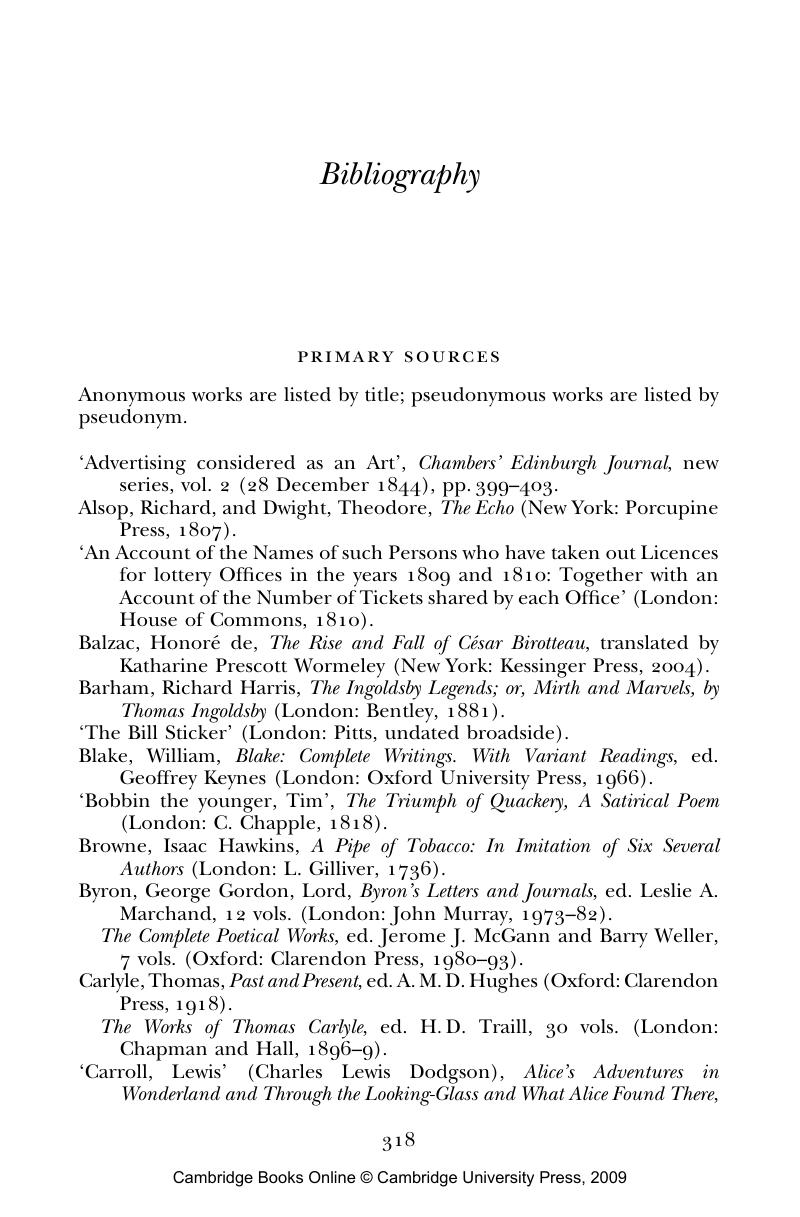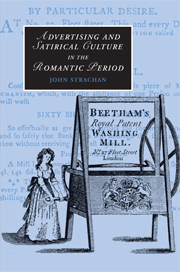Book contents
- Frontmatter
- Contents
- List of illustrations
- Acknowledgements
- Introduction
- 1 A ‘department of literature’: Advertising in the Romantic period
- 2 ‘Humbug and Co.’: Satirical engagements with advertising 1770–1840
- 3 ‘We keeps a poet’: Shoe blacking and the commercial aesthetic
- 4 ‘Publicity to a lottery is certainly necessary’: Thomas Bish and the culture of gambling
- 5 ‘Barber or perfumer’: Incomparable oils and crinicultural satire
- 6 ‘The poetry of hair-cutting’: J. R. D. Huggins, the emperor of barbers
- Conclusion: ‘Thoughts on puffs, patrons and other matters’: Commodifying the book
- Notes
- Bibliography
- Index
- CAMBRIDGE STUDIES IN ROMANTICISM
- References
Bibliography
Published online by Cambridge University Press: 22 September 2009
- Frontmatter
- Contents
- List of illustrations
- Acknowledgements
- Introduction
- 1 A ‘department of literature’: Advertising in the Romantic period
- 2 ‘Humbug and Co.’: Satirical engagements with advertising 1770–1840
- 3 ‘We keeps a poet’: Shoe blacking and the commercial aesthetic
- 4 ‘Publicity to a lottery is certainly necessary’: Thomas Bish and the culture of gambling
- 5 ‘Barber or perfumer’: Incomparable oils and crinicultural satire
- 6 ‘The poetry of hair-cutting’: J. R. D. Huggins, the emperor of barbers
- Conclusion: ‘Thoughts on puffs, patrons and other matters’: Commodifying the book
- Notes
- Bibliography
- Index
- CAMBRIDGE STUDIES IN ROMANTICISM
- References
Summary

- Type
- Chapter
- Information
- Advertising and Satirical Culture in the Romantic Period , pp. 318 - 330Publisher: Cambridge University PressPrint publication year: 2007



